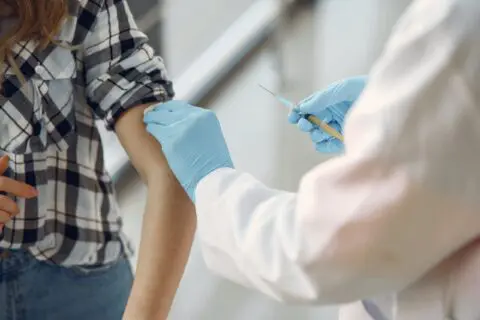The COVID-19 pandemic has significantly impacted lives and livelihoods worldwide. In response, pharmaceutical companies have been racing to produce vaccines to save lives and halt the virus’s spread. Various governmental bodies have now approved several leading COVID-19 vaccines.
The United States aims to vaccinate most of its population by the summer of 2021. Studies have shown that vaccines effectively reduce severe illnesses caused by COVID-19, which should relieve the burden on healthcare facilities and facilitate a return to everyday life.
How COVID-19 Vaccines Work
To understand how vaccines work and how our immune system works. When our bodies detect a foreign intruder, such as a virus or bacteria, the immune system deploys cells to fight the infection.
Once the infection is defeated, the immune cells retain “memory” of how to fight it. This means that if our bodies encounter the same infection again, the immune cells can quickly and effectively defeat it.
Vaccines take advantage of this ability by introducing an inactivated form of the virus or subunits of the virus to trigger the body’s immune response. This initial immune response produces “memory” cells, which can fight the actual virus if encountered later.
Vaccines are a safe and effective method to fight diseases. They undergo rigorous testing and research to ensure their safety before being released to the public. Thanks to vaccines, diseases like polio, measles, and smallpox are no longer public health threats, and our life expectancy has significantly increased.
Types of COVID-19 Vaccines
There are many types of vaccines available globally. For example, China has developed the Sinovac vaccine, and Russia has the Sputnik V vaccine. However, at the time of writing, these vaccines have not been approved for use in the United States. There are three vaccines currently approved for use in the United States:
Pfizer-BioNTech Vaccine
This mRNA vaccine was created through a partnership between Pfizer and BioNTech. Unlike traditional vaccines that use a weak or inactivated virus, mRNA vaccines teach the body to produce a protein that triggers an immune response. Clinical research has found this vaccine to be 95% effective in preventing COVID-19 illness. It is administered in two doses, 21 days apart, through a shot in the muscle of the upper arm.
Moderna Vaccine
The Moderna vaccine is also an mRNA vaccine, working similarly to the Pfizer/BioNTech vaccine. Clinical studies have demonstrated that it is 94.1% effective at preventing COVID-19 illness. It is administered with two shots, 28 days apart, through a shot in the muscle of the upper arm.
Johnson & Johnson’s Janssen Vaccine
This is a viral vector vaccine, meaning it uses a modified virus to trigger an immune response. Clinical research has shown it to be 66.3% effective in preventing COVID-19 illness. Unlike the Pfizer/BioNTech and Moderna vaccines, this vaccine requires only one shot in the upper arm muscle.
It has also been tested more thoroughly in populations, including some of the mutated COVID-19 variants, and can be transported more quickly than the other two vaccines (refrigerated vs. freezing temperatures).
Should You Get Vaccinated?
Vaccines approved for public use have undergone rigorous tests and checks to ensure safety. Taking a vaccine protects yourself and those around you. Herd immunity is created when a high enough percentage of the population is vaccinated. Herd immunity protects even those who are not immunized because enough people in the community are immune to the virus and do not pass it on to others.
Vaccination usually produces mild side effects, such as nausea, headache, muscle pain, and fever, which typically last only a day or two.
For the latest information about the COVID-19 vaccination program, visit the Centers for Disease Control and Prevention (CDC)’s vaccine information page.




